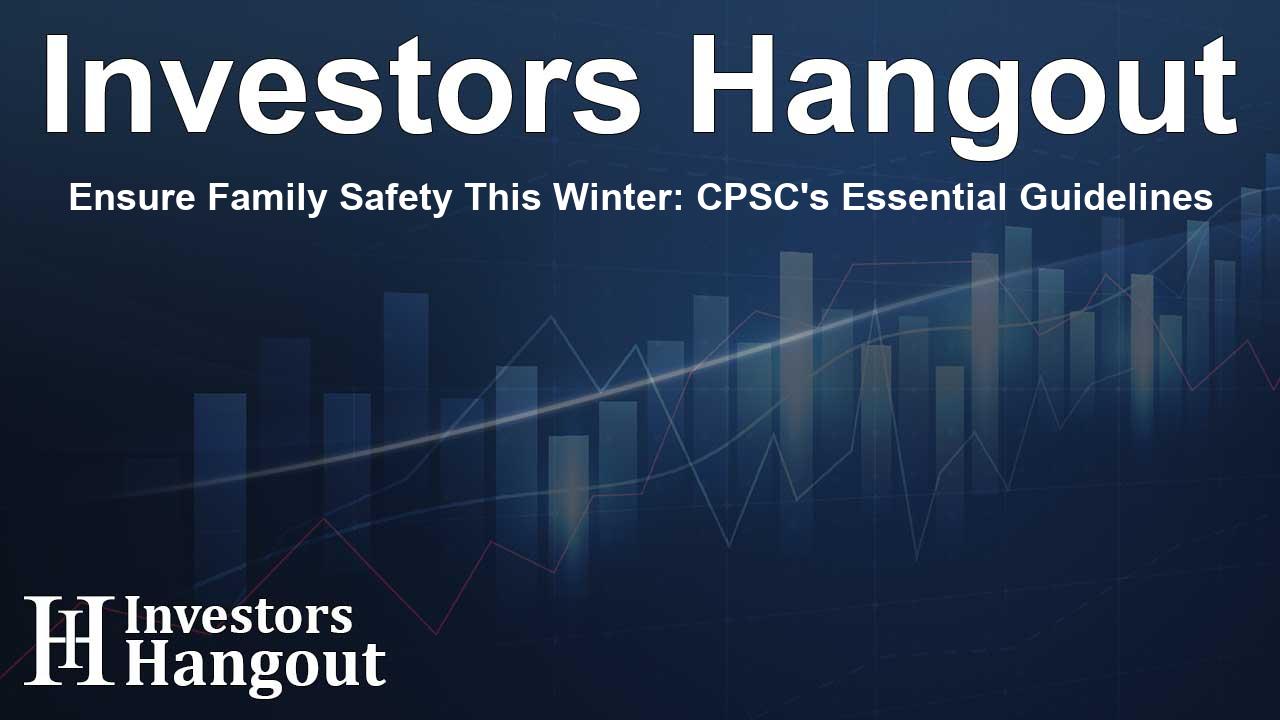Ensure Family Safety This Winter: CPSC's Essential Guidelines

As Winter Weather Impacts Lives, Essential Safety Tips from CPSC
As millions navigate the winter season, the U.S. Consumer Product Safety Commission (CPSC) emphasizes the importance of safety during this time, particularly regarding carbon monoxide (CO) poisoning and fire hazards. It is crucial for families to be proactive in their safety measures during winter weather challenges.
Understanding Carbon Monoxide Risks with Generators
When winter storms cause power outages, many people rely on portable gasoline-powered generators. However, these generators can pose significant risks if not used properly. CO is often called the invisible killer due to its colorless, odorless nature, meaning that it can quickly become dangerous without warning.
Generator Safety Guidelines
To protect against CO buildup, follow these essential rules:
- Never operate a generator inside any compartment or enclosed structure; always place it outdoors at least 20 feet away from your home.
- Ensure the exhaust is directed away from doors and windows to minimize risk.
- Educate yourself on the generator’s operating instructions, particularly during inclement weather.
- Regular maintenance is vital; inspect and service your generator to guarantee it remains functional when needed.
- Select models equipped with CO shut-off features, significantly enhancing safety and reducing the risk of poisoning.
Importance of CO and Smoke Alarms
Having working smoke and CO alarms can save lives. Here are tips for ensuring these devices are effective:
Installing and Maintaining Alarms
- Place CO alarms near bedrooms and on every level of the home for maximum coverage.
- Smoke alarms should also be installed on each floor and nearby sleeping areas.
- Test these devices monthly and replace batteries when necessary; do not ignore alarms.
Portable Heater Safety Measures
Many households utilize portable heaters during winter to stay warm, but proper usage is critical to avoid fire risks. Consider these best practices:
Keeping Safe with Heaters
- Maintain a safe distance of at least three feet between the heater and flammable objects.
- Always place heaters on a stable surface to prevent them from tipping over.
- Do not leave portable heaters running unattended.
- Plug heaters directly into wall outlets; avoid using extension cords or power strips.
Managing Charcoal and Candle Risks
Using charcoal or candles indoors can be dangerous. It's vital to follow safety guidelines to prevent accidents:
Safe Usage of Charcoal and Candles
- Never burn charcoal indoors, as it can release harmful CO.
- Use candles with caution; do not leave them unattended, and extinguish them before leaving the room.
Addressing Gas Leak Dangers
If you detect a gas leak, immediate action is essential. Leave your home right away and call professionals for assistance. Avoid using electrical devices that could ignite a spark.
Flood Preparation and Appliance Safety
Homes may flood during winter storms. Here’s how to handle your appliances if that happens:
Inspecting Wet Appliances
- Assess your appliances for water damage; do not touch wet devices if they’re still connected to power.
- Have professionals check your home for any electrical damage before attempting to use appliances again.
CPSC Resources for Further Guidance
In addition to basic knowledge, families should also explore valuable resources provided by the CPSC, which include educational materials on carbon monoxide and fire safety.
Frequently Asked Questions
What are the main dangers of carbon monoxide poisoning?
CO poisoning can lead to unconsciousness and even death. It's crucial to recognize the symptoms early.
How can I use a generator safely during winter storms?
Place it outdoors, away from your home, and ensure proper ventilation to avoid CO buildup.
Why is it important to have working smoke alarms?
Smoke alarms can alert you to fires and enhance your family's safety in an emergency situation.
What precautions should I take when using portable heaters?
Keep them away from flammable items, never leave them unattended, and connect them directly to outlets.
What should I do if I smell gas in my home?
Evacuate immediately and contact gas authorities from a safe location; do not turn on any electronics.
About Investors Hangout
Investors Hangout is a leading online stock forum for financial discussion and learning, offering a wide range of free tools and resources. It draws in traders of all levels, who exchange market knowledge, investigate trading tactics, and keep an eye on industry developments in real time. Featuring financial articles, stock message boards, quotes, charts, company profiles, and live news updates. Through cooperative learning and a wealth of informational resources, it helps users from novices creating their first portfolios to experts honing their techniques. Join Investors Hangout today: https://investorshangout.com/
Disclaimer: The content of this article is solely for general informational purposes only; it does not represent legal, financial, or investment advice. Investors Hangout does not offer financial advice; the author is not a licensed financial advisor. Consult a qualified advisor before making any financial or investment decisions based on this article. The author's interpretation of publicly available data shapes the opinions presented here; as a result, they should not be taken as advice to purchase, sell, or hold any securities mentioned or any other investments. The author does not guarantee the accuracy, completeness, or timeliness of any material, providing it "as is." Information and market conditions may change; past performance is not indicative of future outcomes. If any of the material offered here is inaccurate, please contact us for corrections.